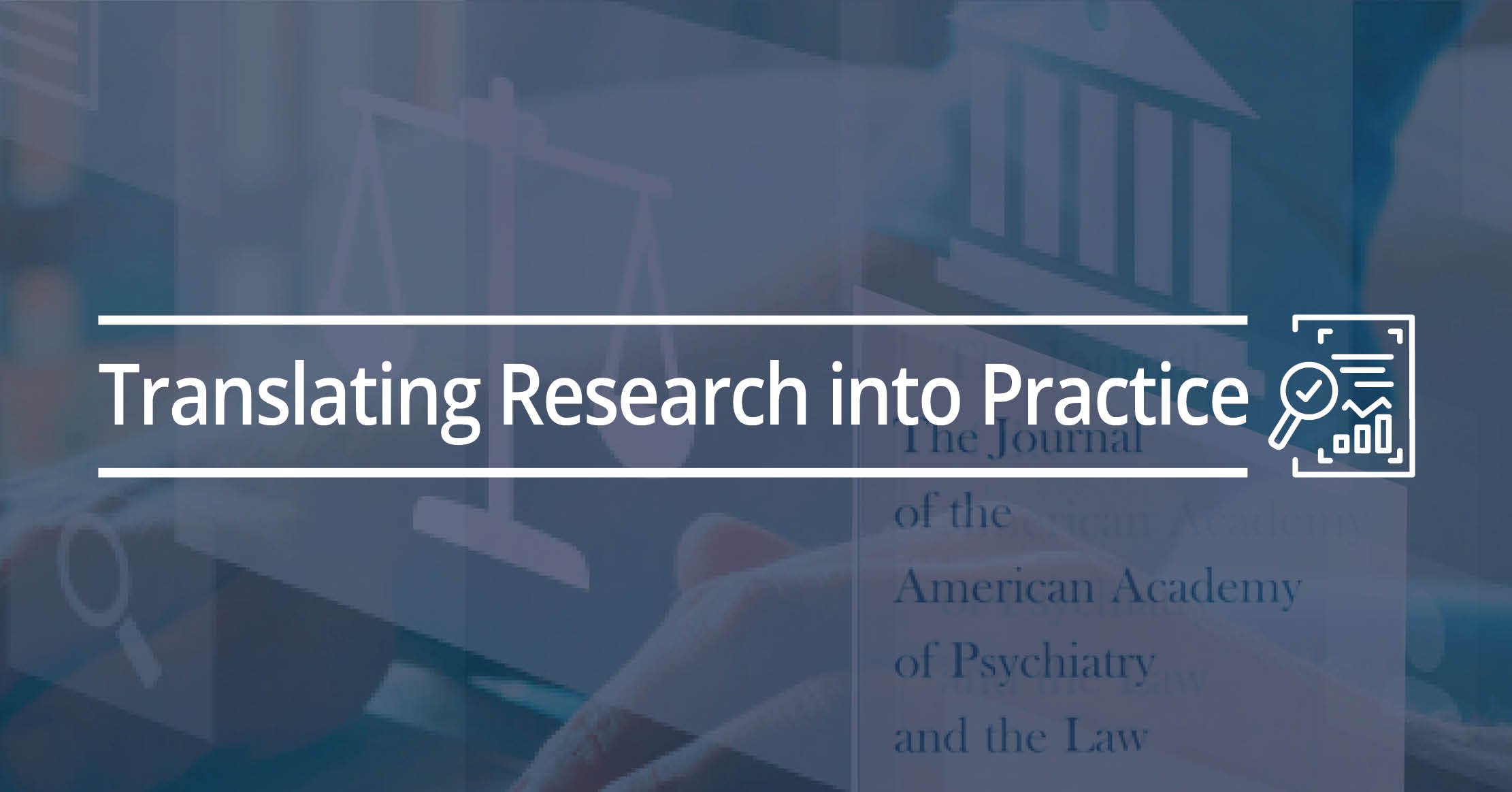Featured Article
Article Title
Insanity Acquittees with Resolved Substance-Induced Psychosis
Authors
Derek Stodolak, MD, JD, Resident in Psychiatry
Department of Psychiatry, Henry Ford Health, Detroit, Michigan
Andrea Brelje, MD, MA, Resident in Psychiatry
Matthew Grover, MD, Clinical Assistant Professor, Program in Psychiatry, Law, and Ethics, Department of Psychiatry, University of Michigan, Ann Arbor, Michigan
Keywords
antisocial personality disorder; substance-induced psychosis; substance use disorder; treatable mental illness
Summary of Research
Translating Research into Practice
Legislative Solutions: The court's call for legislative action highlights the need for clear statutory definitions, addressing conditions excluded from insanity defenses. Advocacy for legislative changes becomes crucial for professionals dealing with similar cases.
Potential Charges: Exploring felony charges for violent acts committed by insanity acquittees lacking a statutory mental illness raises questions about the intersection of legal and psychiatric considerations. Forensic mental health professionals must be aware of legal strategies impacting their evaluations.
Treatment Perspectives: Consideration of research indicating aspects of treatability in ASPD challenges traditional views. Forensic mental health professionals should stay informed about evolving treatment options for personality disorders and their implications for risk assessment.
Conditions of Release: The imposition of stringent conditions upon release underscores the challenge of managing individuals with personality disorders. Psychiatric evaluations must inform the establishment of conditions that balance public safety with the individual's rights.
Ethical Considerations: The court's reluctance in upholding Edwards' release raises ethical questions about balancing legal mandates with public safety concerns. Forensic mental health professionals must navigate these complexities while adhering to legal frameworks in their jurisdictions.
Other Interesting Tidbits for Researchers and Clinicians
Forensic mental health professionals must navigate challenges in cases where insanity acquittees with ongoing danger lack a statutory mental illness, as exemplified by Edwards. Professionals should advocate for legislative clarity, possibly amending definitions to exclude certain conditions from insanity defenses. Prosecutors could explore felony charges for violent acts, considering ASPD as a nonmental illness. Mental Health experts should critically assess the treatability of ASPD and consider evolving research on psychosocial interventions. When releasing insanity acquittees, imposing stringent conditions and continuous monitoring might deter criminal behavior. This case underscores the importance of understanding legal precedents and statutory requirements for forensic mental health professionals dealing with complex cases.






















